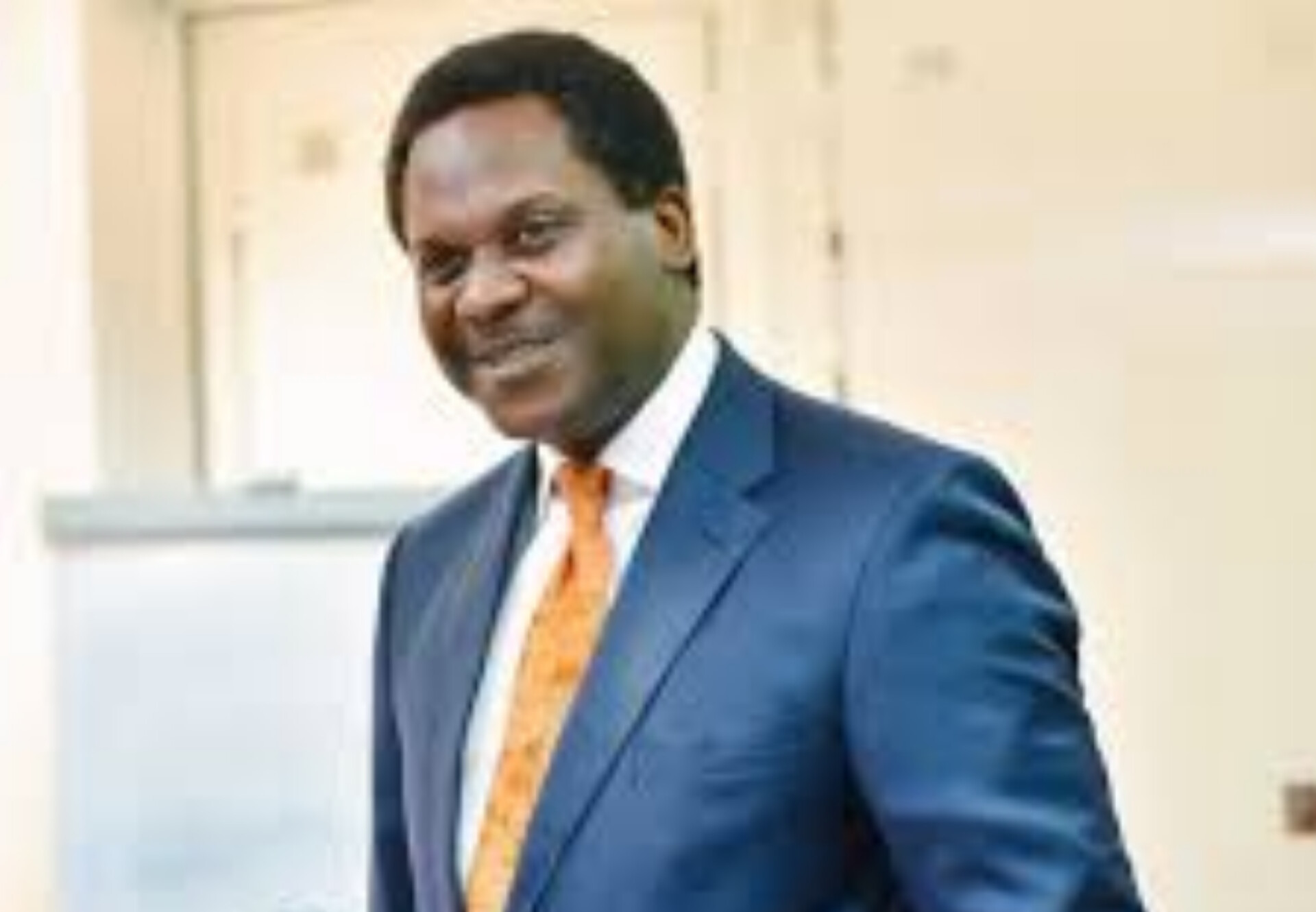By Tunde Olusunle
He was painstakingly unearthed and hoisted to the upper rungs of the nation’s public office in 2017. He was not one of the usual suspects, those ever-grovelling political careerists routinely recirculated and recycled in the scheme, with the advent of each and every political dispensation. Ours, sadly, is a country which perennially undermines its goldmine of human resources, always ever retreading spent hustlers and worming jobbers. The sole legacies bequeathed on the spheres of superintendence of such political climbers, consist mainly of triumphalist self-aggrandisement, plus the gaping potholes they leave behind as mementos in the balance sheets of their places of primary assignment. He was his unobtrusive, unassuming self, an easygoing, consummate technocrat, a career attorney. He was content in his chambers both in Nigeria and the United States, where he meticulously prepared his briefs ahead of his court appearances on behalf of his clients. True and through, he was breath of clean air in a governance atmospheric choked by gross putrefaction.
He was assigned a leadership responsibility in a government establishment which was once consigned to the backroom of state administration, both in the geographical and operational senses. The organisation once shared tenancy with motley neighbours in a riotous public complex in the bedlam of Wuse market, in the heart of Abuja, seat of federal governance. The establishment moved to a more respectable accommodation in Wuse 2, Abuja, away from the stomp and shove, the hustle and bustle of its earlier address. Under his watch, the organisation relocated, first to a temporary stop in the upscale Maitama district. It has since moved over to close proximity with the State House, Aso Villa, within an earshot of the “Three Arms Zone,” where the executive, legislative and judicial tripod of statecraft, triangulate. Such has been the narrative of the ascendancy of his organisation within his five-year regime thus far, and its growing impact in the national governance scheme.

Babatunde Ayokunle Irukera was appointed director-general of what then was the “Consumer Protection Council,” (CPC), in 2017. He has since reworked the organisation into a more focused, far-sighted, more contempraneous Federal Competition and Consumer Protection Commission, (FCCPC), a holistic overhaul which continues elicit delight from staffers and the public alike. Irukera has redesigned the new body to promote market competition, protect consumers from mischievous service providers and to take the front row in seeking justice for trespass on consumer rights. The holistic makeover of the terms of reference, (TOR), of the organisation necessitated the recast of his office to that of the “executive vice chairman” of the commission, (EVC). Ever since, the FCCPC has never shied away from from taking the battle for fair treatment, justice and consumer satisfaction, to defaulters.
The FCCPC continues to partner with relevant ministries, departments and agencies, (MDAs), to ensure that consumers get value for their money. In collaboration with the National Agency for Food and Drug Administration Control, (NAFDAC) for instance, Irukera’s FCCPC in 2018, sealed off the popular Lagos-based confectionery brand, “Krispy Kreme Doughnuts.” The outfit was discovered to have altered the expiry dates of its doughnut mix and fillings. The FCCPC felt that such disingenuous practice was calculated to cheat on consumers and impair their health. The FCCPC has also come hard on the South African terrestrial television service, “Multichoice Nigeria Ltd,” for arbitrary increases in the costs of their services.
The FCCPC under Irukera has also battled banks for illegal deductions from the accounts of their customers and engaged with electricity distribution companies for poor services to their otherwise hapless customers. The typically gentlemanly Irukera indeed had cause on one occasion to describe the services of the Port Harcourt Electricity Distribution Company, (PHEDC), as “oppressive and outrageous.” He has demonstrated uncommon daringness in the discharge of his mandate, irrespective of potential risks to his person, and misrepresentations of his altruism by sections of the Nigerian public. The FCCPC under him has evolved into an exemplar of global best practices in the administration of a public institution.
Despite his previously established reticence and preference to work away from the klieglights, acclamation was bound to come for him and his organisation, sooner or later, someday. On Monday December 11, 2023, *Leadership* newspapers one of Nigeria’s finest tabloids named the FCCPC “Government Agency of the Year.” The organisation was so selected “for promoting fairness, regulatory stability and consumer protection within the marketplace.” Institutions do not operate in a void. They are steered by helmsmen who guide their focus and growth respectively. In bestowing this award on the FCCPC therefore, Irukera will rightly and deservedly step on the dais to receive the medal.
*Leadership* notes in its announcement of the award, that Irukera since his appointment in 2017, has pursued “a transformative journey reshaping and rebranding the CPC, into a proactive and consumer-centric FCCPC.” According to *Leadership,* “Irukera’s oversight of the Commission’s transformation and operationalisation beginning from January 30, 2019,” has been a game-changer. Following the enactment of the Federal Competition and Consumer Protection Commission Act, Irukera has demonstrated “unwavering dedication to fostering a dynamic and responsive regulatory environment,” according to *Leadership.* The FCCPC under Irukera’s visionary guidance “has recorded numerous milestones across diverse sectors including healthcare, digital finance and electricity,” according to the organisation which is honouring the FCCPC and Irukera.
*Leadership* posits further that “one standout accomplishment is the strategic development and implementation of the “Patient Bill of Rights.” This groundbreaking initiative establishes a comprehensive framework empowering patients with essential rights, such as informed consent, confidentiality and unrestricted access to their medical records.” This document, *Leadership* observes, “serves as charter of principles delineating the rights and responsibilities of patients, healthcare providers and the regulatory body, an approach which fosters a culture of transparency, accountability and patient-centric care.” Beyond healthcare, Irukera’s leadership at the FCCPC has witnessed other strategic initiatives and impactful interventions in other sectors, notably in digital finance, the power sector, and in the nation’s bureaucracy.
The FCCPC under Irukera’s watch has been catalytic in shaping Nigeria’s business environment which become more cognisant of the emplacement of fairness, consumer protection and regulatory stability. Local and foreign investors have continued to experience the transformative impact of standardised practices instituted by the FCCPC. This congruence between national and international standards, in combination with rigorous process auditing and the development of guidelines and standard operating procedures serves as imprimatur of quality assurance in the Nigerian marketplace. Such is the entrenchment of novelties and innovations brought to bear on the FCCPC under the direction of Babatunde Irukera.
For his diligent application to his work, his drive for perfection, his tirelessness, humility and amiable disposition, not many know that Irukera is actually a blue-blood. His father, Oba Ayodele Irukera, an erstwhile very senior university administrator, has been the *Elegbe of Egbe* in Yagba West, Kogi State, for nearly 10 years. Babatunde Irukera, however, has refused to be excited by such conferments. He is a regular guy, never shy of expressing himself in *Yagba,* the indigenous tongue of those of us from the three local government areas which constitute Yagba federal constituency, despite his inalienable cosmopolitanism. Our kinsmen populate Mopamuro, Yagba East and Yagba West local councils, and overflow into contemporary Kwara and Ekiti states.
Irukera is following the noble precedence of Yagba icons, past and present like Sunday Bolorunduro Awoniyi; Silas Bamidele Daniyan; Moody Olorunmonu; Joseph Eyitayo Adetoro. Others include: Adeoye Adeniyi; Kola Jamodu; Harry Osha; Eyitayo Lambo; William Akin Adesina; Tunde Adelaiye; Albert Anjorin; Felix Anjorin; Bamidele Solomon and Pius Adesanmi. There are also Olayinka Simonyan; John Kayode Sinkaiye; Edward Aina; Babatunde Paul Fadumiyo and Sola Enikanolaye. Sam Teidi; Femi Adeoye; Toyin Akanle; Theophilus Ilemore; Kunle Awarun; Jones Babalola; Mathew Teidi; Paul Olayinka Okuntimo; Akinwumi Ajibade; Foluso Daniels, (all retired Generals across the military and intelligence services), bear the Yagba imprimatur. Duro Adeyele; Malomo Awomolo; Ayo Asala; Eyitayo Fatogun; Alfred Olufemi Atteh, all Senior Advocates of Nigeria, (SAN), are from the same Yagba section of the global Okun country.
Tunde Irukera with whom I share a number of intersections beyond our names, is flying the banner of this enviable stock of technocrats, intellectuals, diplomats, private sector leaders, military and intelligence professionals, solicitors and advocates. And he is doing a very good job of it. This is celebrating him on this eminently honour as precursor to several other imminent recognitions.
Tunde Olusunle, PhD, poet, journalist, scholar and author is a Fellow of the Association of Nigerian Authors, (ANA)



